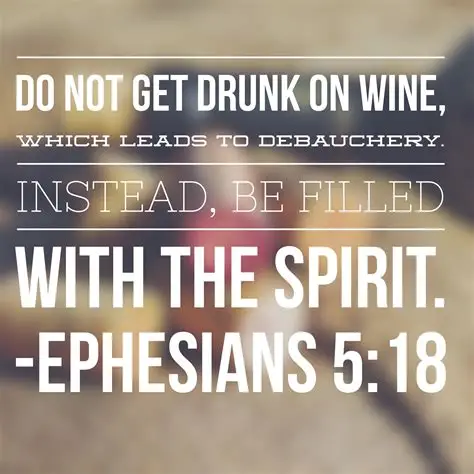BE FILLED WITH THE HOLY SPIRIT
THE SEED
“And do not be drunk with wine, in which is dissipation; but be filled with the Spirit.” — Ephesians 5:18 (NKJV)
What does it mean to be filled with the Holy Spirit? It means being empowered by God’s presence, living according to His will, and being transformed by His divine power. When we are filled with the Holy Spirit, the Spirit of Christ dwells within us, guiding and strengthening us to live a life that pleases God. Being filled with the Spirit deepens our relationship with God, increases our faith, and rebuilds our spiritual life. Unlike worldly achievements that require wealth, status, or physical effort, receiving the Holy Spirit only requires faith, belief, and a willingness to surrender to God. When we walk in obedience and align ourselves with His will, the Holy Spirit continues to dwell in us, shaping our character and actions. However, being filled with the Spirit does not mean we will never face temptation. Even Jesus, though filled with the Holy Spirit, was tempted by the devil. Yet, He overcame through the power of the Spirit and the Word of God. Likewise, when we are filled with the Holy Spirit, our old ways are transformed, and we develop a new lifestyle characterised by prayerfulness, humility, spiritual power, and
excellence in all we do. Acts 1:8 tells us: “But you will receive power when the Holy Spirit has come upon you, and you will be my witnesses in Jerusalem, and all Judea and Samaria, and to the end of the earth.” This reminds us that the Spirit equips us to boldly share the gospel and walk in divine authority.
BIBLE READING: Acts 2:1-8
PRAYER: Lord, fill me with Your Holy Spirit so that I may walk in obedience and righteousness. Forgive my sins, and from today, let Your HOLY Spirit lead and guide me in all I do in Jesus name, Amen.
KI O KÚN FUN ẸMI MIMỌ
IRUGBIN NAA
“Ma se muti wáìnì yó, nínú èyí tí a ti ń tú ká; ṣugbọn ki o kun fun Ẹmi.” — Efesu 5:18 (NKJV).
Kí ló túmọ̀ sí pé ki ó kún fún Ẹ̀mí Mímọ́? Ó túmọ̀ sí gbigba agbára nipa iwalaaye olorun, gbígbé ní ìbámu pẹ̀lú ìfẹ́ Rẹ̀, àti yíyí padà nípasẹ̀ agbára àtọ̀runwá Rẹ̀. Nigba ti a ba kun fun Ẹmi Mimọ, Ẹmi Kristi ngbe inu wa, ti n ṣe itọsọna ati fifun wa ni okun lati gbe igbesi aye ti o wu Ọlọrun. Níwọ̀n bí ó ti kún fún Ẹ̀mí ń mú kí àjọṣe wa pẹ̀lú Ọlọ́run jinlẹ̀ sí i, ó mú ìgbàgbọ́ wa pọ̀ sí i, ó sì tún ìgbésí ayé tẹ̀mí wa kọ́.
Ko dabi awọn aṣeyọri ti aye ti o nilo ọrọ, ipo, tabi igbiyanju ti ara, gbigba Ẹmi Mimọ nikan nilo igbagbọ, igbagbọ, ati ifẹ lati jowo fun Ọlọrun. Nigba ti a ba rin ni igbọràn ti a si so ara wa pọ pẹlu ifẹ Rẹ, Ẹmi Mimọ n tẹsiwaju lati gbe inu wa, ti n ṣe iwa ati awọn iṣe wa. Bí ó ti wù kí ó rí, kíkún fún Ẹ̀mí kò túmọ̀ sí pé a kì yóò dojú kọ ìdẹwò láé. Bí ó tilẹ̀ jẹ́ pé Jésù, bí ó tilẹ̀ jẹ́ pé ẹ̀mí mímọ́ kún, Bìlísì dán an wò. Síbẹ̀, Ó borí nípasẹ̀ agbára Ẹ̀mí àti Ọ̀rọ̀ Ọlọ́run.
Bakanna, nigba ti a ba kun fun Ẹmi Mimọ, awọn ọna atijọ wa ti yipada, ati pe a ṣe agbekalẹ igbesi aye tuntun ti o jẹ afihan nipasẹ adura, irẹlẹ, agbara ti ẹmi, ati didara julọ ni gbogbo ohun ti a ṣe. Ìṣe 1:8 sọ fún wa pé: “Ṣùgbọ́n ìwọ yóò gba agbára nígbà tí Ẹ̀mí Mímọ́ bá dé bá yín, ìwọ yóò sì jẹ́ ẹlẹ́rìí mi ní Jerúsálẹ́mù, àti gbogbo Jùdíà àti Samáríà, àti títí dé òpin ilẹ̀ ayé.” Èyí rán wa létí pé Ẹ̀mí ń pèsè fún wa láti fi ìgboyà ṣàjọpín ìhìn rere àti rnrìn nínú ọlá-àṣẹ àtọ̀runwá.
BIBELI KIKA: ÌṢE AWON APOSTELI 2:1-8.
ADURA: Oluwa, fi Emi Mimo re kun mi ki n le rin ni igboran ati ododo. Dari ese mi jimi, ati lati oni, jeki Emi Mimo Re tomi ki o si dari mi ni gbogbo ohun ti mo ba se ni oruko Jesu, Amin.
